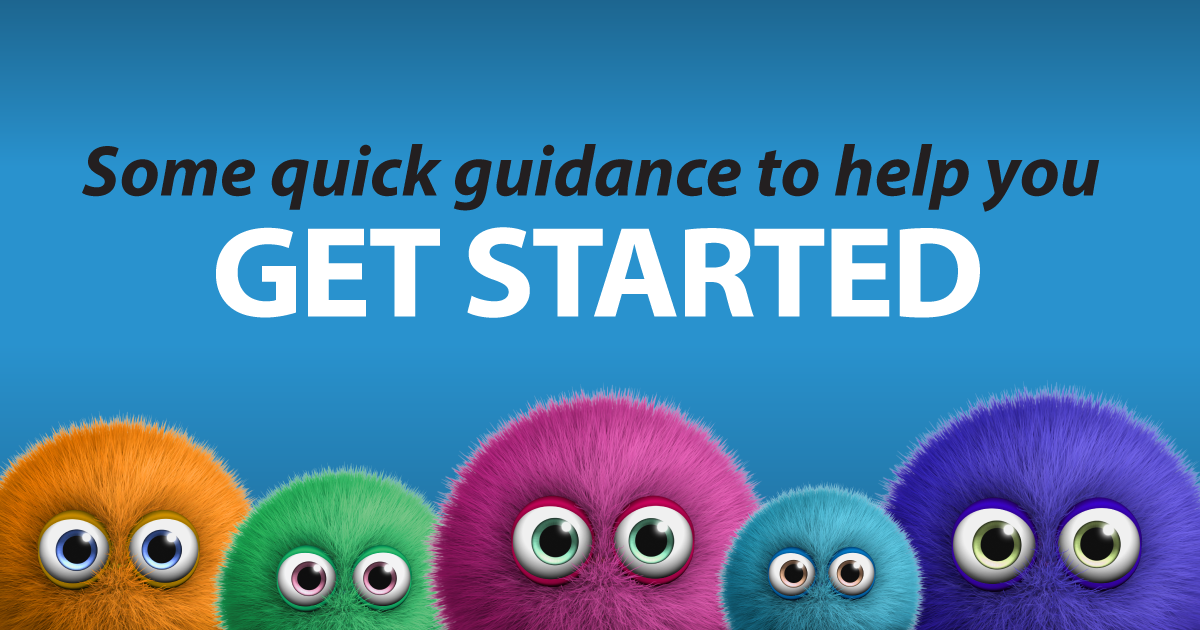
How to get started with Google Ads
Google offers you some excellent tools for tracking your site traffic and bidding on keywords. But let’s be honest, these interfaces aren’t the most user-friendly. In fact, at first glance they can be overwhelming and incomprehensible.
The good news is you don’t have to be a tech guru to get started. Trust me, I’ve helped plenty of people get past their tech-no-thank-you’s to start getting real value out of digital marketing tools. If they can do it, you can, too. Here’s some quick guidance to help you get started.
What the heck even is a Google Ad?
There’s something you need to know: Google Ads don’t work like billboards or traditional print advertisements. You aren’t buying space then trying to get someone’s attention. You’re bidding for people’s attention when they are already looking for what you offer. That is to say, real people type real search queries into Google, and then Google decides whether or not they’ll see your ad.
Before you get started, head to Google and search for something like, “Tiny puppy shoes.” Some of the first entries you will see will be sponsored Google Ads. Your Google Ad will look at lot like these. It will appear on the Google search results page and say “Sponsored” above your name.
Because most Google Ads look similar, you need to focus on what will make it the most appealing and effective. In general, it’s a good idea to keep it understandable, recognizable, and informative.
The anatomy of the campaign builder
When you create a new campaign, you’ll notice there are five categories on the left-hand navigation. The first of these is “Bidding.” Remember when I said you’re bidding for attention? That wasn’t metaphorical. Google charges you a certain amount per “action,” such as a click, and this is where you can specify your cost-per-action.
The next entry in the navigation is “Campaign Settings” which is kind of a catch-all for specifying your target location and audience, down to the language they speak. Most of this is exactly what it seems.
The third entry varies based on the type of campaign you’ve selected. On the most basic campaign, Search, it appears as “Keywords and Ads.”
If you’ve spent three seconds looking into digital marketing, you’ve probably run into the term “keyword.” Put simply, a keyword is a word or phrase that Google looks for when deciding where to place your Ad.
By selecting keywords, you’re letting Google know where you want your money to be spent. This keeps you from advertising auto loans to people who search for health insurance, for example. Google looks for phrases like “buy a car” and “auto loans,” and uses your campaign’s budget and other parameters to determine whether that person sees your Ad, or not.
The final entries are “Budget” and “Review,” which are also pretty straightforward. You should be aware, however, that even though the campaign builder suggests a minimum budget, it’s not a requirement. As to how much you actually do need to budget, that’s where good old fashioned research comes in.
It pays to be forewarned
At first, it can be hard to tell whether your campaign is getting you the desired results. It’s highly unlikely someone will end up telling you “I saw your really excellent Google Ad and I just had to give you a call!” This is why it’s best to monitor your campaign’s progress as you go, and try not to nit-pick until you have some solid results to analyze.
To be honest, there are a lot of variables at play when it comes to Google Ads. Your budget, your selected keywords, location, demographics and other parameters can influence your campaign’s overall success. On top of that, a nearby competitor who’s bidding for the same keywords in the same location can throw a wrench into the gears as well.
It’s easy to get led astray by bidding on really expensive keywords, or fixating on specific keywords you personally like. The remedy for both issues is to be guided by the data; look at actual data on what actual people are actually searching for, not what you think they ought to be searching for. Then look for those under-utilized opportunities in similar words and concepts that aren’t as expensive or difficult.
There are tools such as SpyFu and KWFinder that can be used to assess keyword performance and competitor comparisons, but these are subscription based programs so I wouldn’t recommend signing up right away. Track your campaign’s performance for a while before making that kind of decision, or ask for help.
I don’t think I can overstate how important it will be to take your time and be patient. A poorly-built or under-funded campaign could potentially end up just being a waste of money. And ending your campaign early could end up being premature, keeping you from seeing the full potential.
Creating a Google Ads campaign might not be a daily time-suck like running a social media account, but it’s not really something you can set and forget, either. You need to check the results regularly, and be ready to experiment when things aren’t working out. Ultimately, you don’t know how well anything will work until you try it.
- Email Marketing – The Overwhelmed Marketer’s Guide (OMG!) - April 23, 2024
- How do you get new members to Google you? - March 26, 2024
- 3 big money questions from a new father - March 5, 2024
